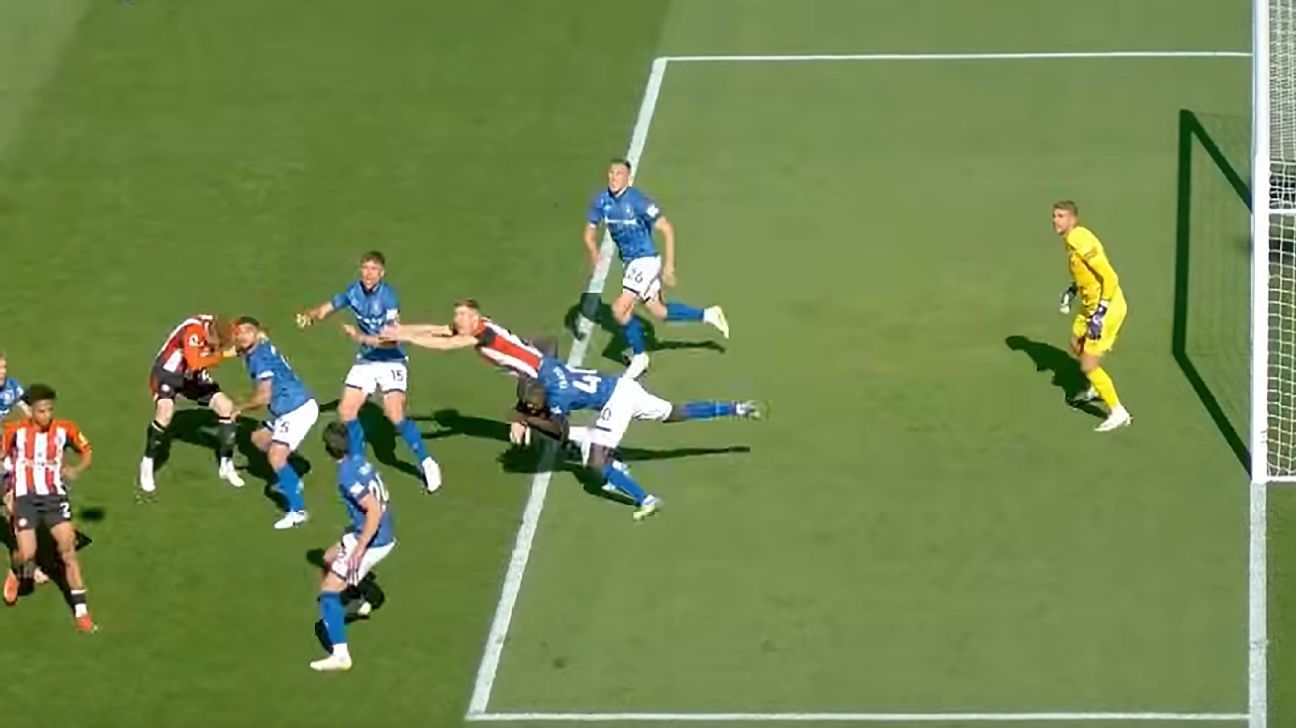The 2025-26 Premier League season kicks off on Friday with Liverpool facing AFC Bournemouth. As usual, the new season introduces several legal modifications and initiatives worth noting.
Focus on Holding During Set Pieces
Last season, there was a noticeable increase in players holding opponents in the penalty area, prompting referees to prioritize this issue for the upcoming season. The concern remains whether this focus will fade after a brief period. Historically, whenever new initiatives are put forth, referees often face criticism for being overly strict, resulting in a return to previous leniencies. Nevertheless, there is a consensus that referees tend to overlook excessive holding and must establish clearer boundaries. They are also encouraged to penalize infractions directly instead of giving repeated warnings, meaning delays during corner kicks for discussions between referees and players should become less common. Referees and VAR will be looking for significant contact that impedes movement, rather than minor holds.
Goalkeeper Holding the Ball Too Long = Corner
We’ve all seen it: shots on goal and corners where the goalkeeper lies on the ball for over 10 seconds before considering their next steps. This tactic has often been used by away teams to waste time, frustrating opponents. Historically, the rule mandated goalkeepers release the ball within six seconds, but this has not been enforced in years. Presently, they have eight seconds, after which the referee will signal a countdown; failing to release the ball will result in a corner for the opposing team. While referees want to avoid being excessively harsh, they are expected to be stricter when goalkeepers take too long to get up.
VAR and Offside Technology
The Premier League will uphold strict criteria for VAR decisions based on the concept of a “referee call” and aims to align with 83% of stakeholder opinions from coaches, players, and fans. Last season saw a reduction in VAR mistakes, although fan perceptions may not reflect this improvement. Semi-automatic offside technology (SAOT) will be introduced from the start, aiming to minimize delays that previously averaged 39 seconds in VAR checks.
Handball and Double-Touch Penalties
Only nine penalties for handball were awarded last season in the Premier League, a number significantly lower than other top leagues. Stakeholders generally support the current leniency, leading referees to continue with the same interpretation. Additionally, after high-profile incidents involving double touches on penalties, the law has been clarified; now, if a player inadvertently touches the ball twice, the decision will depend on whether the second touch was intentional.
Referee Body Cameras
A new initiative is on the horizon: referee-worn cameras may soon offer fans a perspective of the game from the officials’ viewpoint. Planned to be tested early in the season, this could enhance viewer engagement and understanding of refereeing decisions.
Official Communication
An exciting development includes referees announcing decisions from VAR checks to the crowd through public address systems, a concept already trialed in earlier cup matches.
Changes to Interactions with Referees
A new policy states only team captains may approach referees, aiming to reduce crowded discussions during games.
Drop Ball Rule
A simpler modification states that if the ball strikes the referee, it will now be given to the team that last had possession, streamlining the process.
Coach Interference
Finally, coaches who try to play the ball without stopping the game will not receive red cards unless they deliberately hinder opponents.
Fan Take: These updates are crucial for soccer fans, as they can significantly impact the flow and fairness of the game. Enhanced transparency and stricter enforcement of rules may improve the overall quality of play and the viewing experience, fostering greater respect for referees and game integrity.



